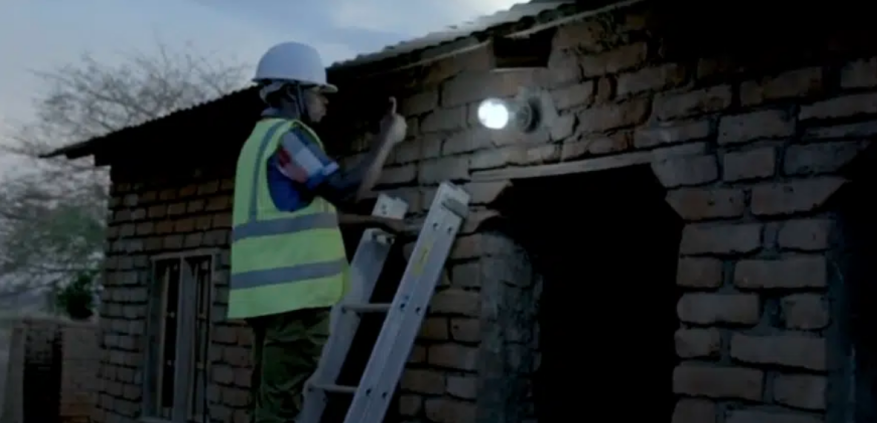When residents of Mthembanji village greeted the arrival of a 20-foot shipping container to their village in Malawi’s Dedza District, last year, it sparked a host of new opportunities for people in the community.
The transporter carried the components of a 12-kilowatt solar-powered microgrid – which, once installed, provided 60 homes and small businesses with a supply of electricity for the first time.
Funded by the Scottish Government and managed through a partnership between the University of Strathclyde in Glasgow and Self Help Africa’s sister organisation, United Purpose, the new solar powered plant has provided more than just clean energy for the people of Mthembanji, it has also created new income generating opportunities and better living quality for villagers. Children attending school are benefiting from electric light in their classrooms and as they do their homework, home-makers are cooking indoors with the benefit of electric light, while the dependence on costly batteries to charge radios, phones and other devices has receded for villagers.
Indeed, some local entrepreneurs are finding new ways to generate an income from their new utility – with cold drinks being sold in a local shops and goods that might otherwise spoil, being preserved with refrigeration.
The Rural Energy Access through Social Enterprise and Decentralisation (EASE) project is funded by the Scottish Government’s Malawi Development Programme, and builds on the longstanding partnership between United Purpose and the University of Strathclyde.
The project focuses on marginalised rural communities in Dedza and Balaka Districts. It addresses energy challenges via a community-centred approach to deploy holistic, sustainable solutions to the complex energy challenges experienced in these communities, specifically through deploying microgrids, energy hubs, and District Energy Officers. Through this project, UP is supporting the Government of Malawi to achieve their 2030 target of sustainable energy for all.

